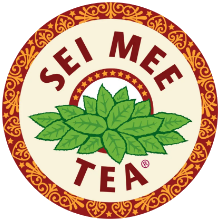Gain muscles to lose weight
“Lose weight” is on the wish list for a lot of people, and a lot of people decide to “eat less” and “do more exercise” to lose weight. Probably many of you know muscles burn more calories than fat, because fat requires less energy to maintain. That’s why metabolism declines as we lose muscles. On top of that, fat cells secrete hormones to hamper or alter healthy body chemical activities. Thus, maintaining or restoring muscle mass would be a great way to maintain higher metabolic rate and prevent various diseases caused by our modern life style.
Muscle loss after 40
The typical image for “building muscles” is “humongous muscles of body builders”, and not always well-accepted especially for women. However, a conscious effort to build muscle is actually critical, especially for people older than 40, because muscle loss outpaces muscle gain as you age. “As a rule, muscle mass declines with age, starting in the 40s and picking up speed after about age 50.”*1 This is called “sarcopenia”, age-related decline in muscle mass and function. “Insufficient protein, especially if it’s accompanied by insufficient calories in general, can contribute to sarcopenia”, says Douglas Paddon-Jones, director of exercise studies for the General Clinical Research Center at the University of Texas Medical Branch in Galveston.*1 So if you don’t eat to lose weight, you may be merely turning the withered muscles into fat. With the same volume, fat weighs less than muscles so you may have a disguised “good” result momentarily by not eating.
Exercise and protein to rebuild muscles
Exercise, obviously, is a good way to counter muscle loss. I learned muscles are the organs which metabolize faster. That means, constantly muscle cells die and constantly new muscle cells are created. However, the new muscle cells don’t function as muscle until they grow into real muscle. Without exercise and nutrition, the new muscle cells become fat. Resistance exercise improves muscle protein balance, but, in the absence of food intake, the balance remains negative (catabolic or break down). Protein availability is important to rebuild muscles (anabolic) and the anabolic result is greater than when dietary amino acids (protein) are not present.*2
Green tea to increase metabolism
One of the health benefits from green tea antioxidants, Catechins, is to increase metabolism. Drinking green tea before and after exercise is a great way to ensure the positive effects from exercise. Also it replenishes antioxidants in your body. While you exercise, your body generates more free radicals and your body needs fresh antioxidants to neutralize them. Milk also is a great “sport drink” which provides nutrition that the body needs to recover from “trauma” of exercise. Green tea antioxidants and milk protein thus make a great “post workout sport drink”.
Milk extends green tea effects
Some of you may remember Casein, a kind of milk protein, was believed to negate Catechins’ antioxidant activities. After many studies on this subject, scientists found that Catechins are just released more slowly when consumed with milk protein and actually extend the effects of the green tea antioxidant activities. As a result, the effect of catechin lasted from 4 to 8 hrs after the green tea was consumed with milk proteins, while the effect lasted only 4 hrs after green tea alone was consumed. *3
Whey and green tea: more beneficial than Casein and green tea
Casein is 80% of milk protein and the rest is Whey, and scientists even found green tea effects lasts longer with Whey than with Casein. Whey also has shown many health benefits according to scientific studies. *3 Great post exercise sport drink: green tea with whey The combination of green tea and milk may be a great sport drink to fight muscle loss and burn more fat. Whey products are popular and available even at grocery stores so why not whip up green tea smoothie with milk and/or Whey? “Cheers for another great year!”
*1 U.S. News “How to Avoid Losing Muscle as You Age” By KATHERINE HOBSON September 4, 2008
*2 Int J Sport Nutr Exerc Metab. 2001 Mar;11(1):109-32.Exercise, protein metabolism, and muscle growth. Tipton KD, Wolfe RR.Source Metabolism Division, Department of Surgery, University of Texas Medial Branch-Galveston, Galveston, TX 77550-2720, USA.
*3 “Study on prevention of modern chronic diseases with effective usage of skim milk” Prof. Masaaki Yoshikawa, et al. (in Japanese) page 60 to page 65.
Click here to Return to Blog Articles
Meet the Author: Kiyomi



